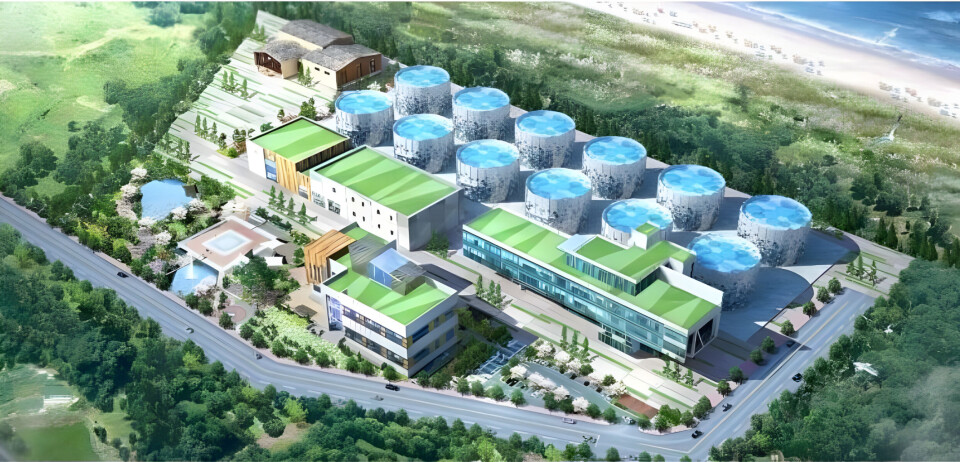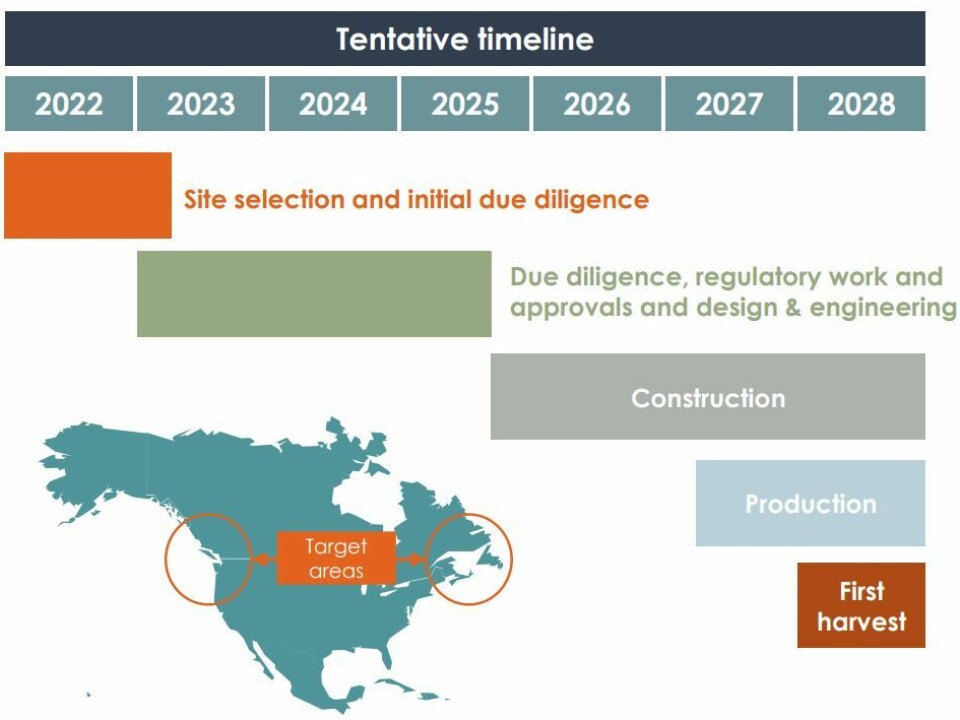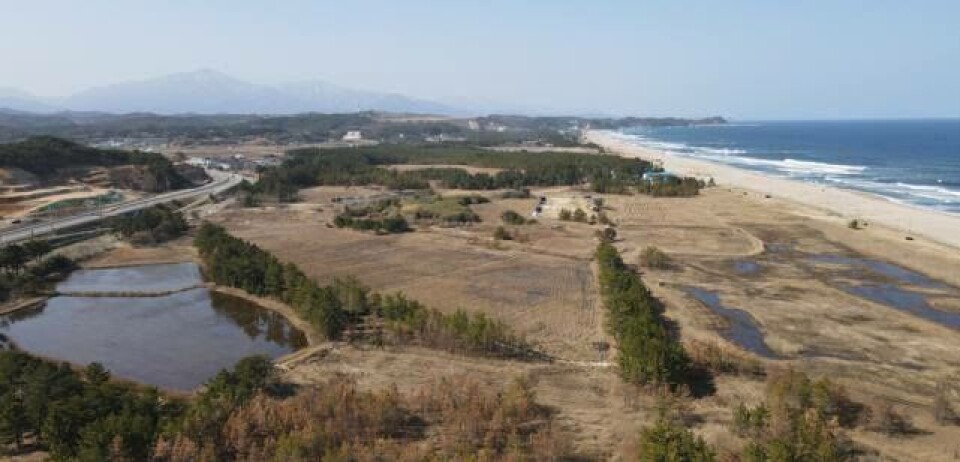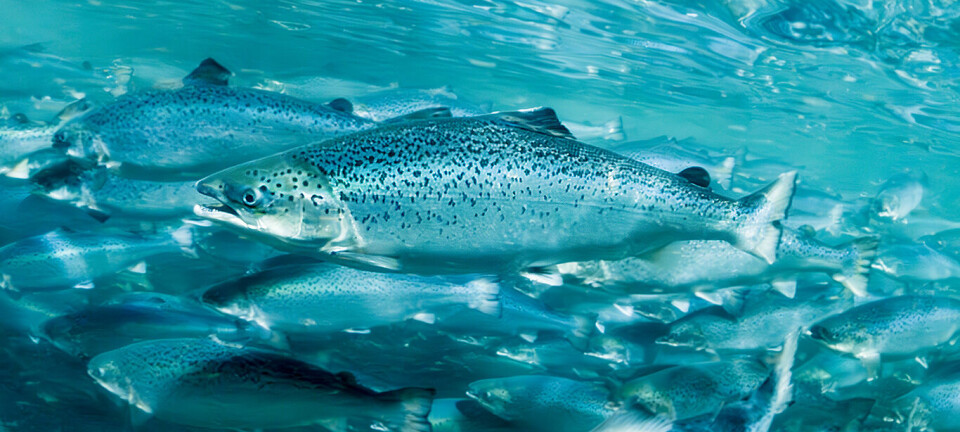
Salmon Evolution faces challenges with overseas projects
The Norwegian land-based fish farmer seeks to build facilities in both South Korea and North America, but there are several factors that are creating difficulties.
Both the current uncertainty related to the impact of potential tariffs in the North American market, as well as the absence of a regulatory framework for land-based salmon farming in North America, reduce the relative attractiveness of expanding into this market, Salmon Evolution writes in its report for the first quarter of 2025.
Over the past three years, Salmon Evolution has conducted an extensive search for suitable locations in North America and says it has identified several promising areas with great potential for a hybrid flow-through system like the one it uses in Norway.
Maintaining presence
A future expansion into North America will mirror the group's approach at Indre Harøy in Norway, focusing on areas with an established value chain for salmon farming, the company writes.
Salmon Evolution says it sees significant value in leveraging existing infrastructure and value chains in the North American aquaculture industry, which allows for economies of scale and cost management, as well as reducing operational and biological risk.
"Salmon Evolution will maintain its presence in North America through a dedicated team, focused on nurturing and developing the strong relationships established over the past three years. This ongoing engagement is an important part of future expansion into this market and represents a limited financial investment."

The company says its strategy of pursuing accretive partnerships in overseas markets remains unchanged.
"When [the] project develops, Salmon Evolution aims to engage in partnership structures leveraging the human capital and maximising shareholder value."
Expensive to develop
The group has a joint venture with the South Korean seafood group Dongwon Industries, where the plan is to develop, build and operate a land-based salmon farming facility with a capacity of 16,800 tonnes HOG in South Korea, based on Salmon Evolution's expertise.
Design and engineering work is largely complete. Permit work is on track and is not considered a significant risk to the project's implementation.
"The group currently considers the financial conditions for the project to be challenging, primarily due to site-specific conditions at the Yangyang site," it writes.
This applies in particular to the solution for water intake and discharge, as the coastline at the facility is relatively shallow.
Additionally, since there is no existing salmon farming industry in Korea, both project costs and operating costs are affected by the need to establish infrastructure from scratch.
The project partners are now collaborating with South Korean authorities to obtain financial support, and further clarifications are expected during 2025.
In the meantime, project activities have been scaled down and cash consumption reduced to a minimum.






















